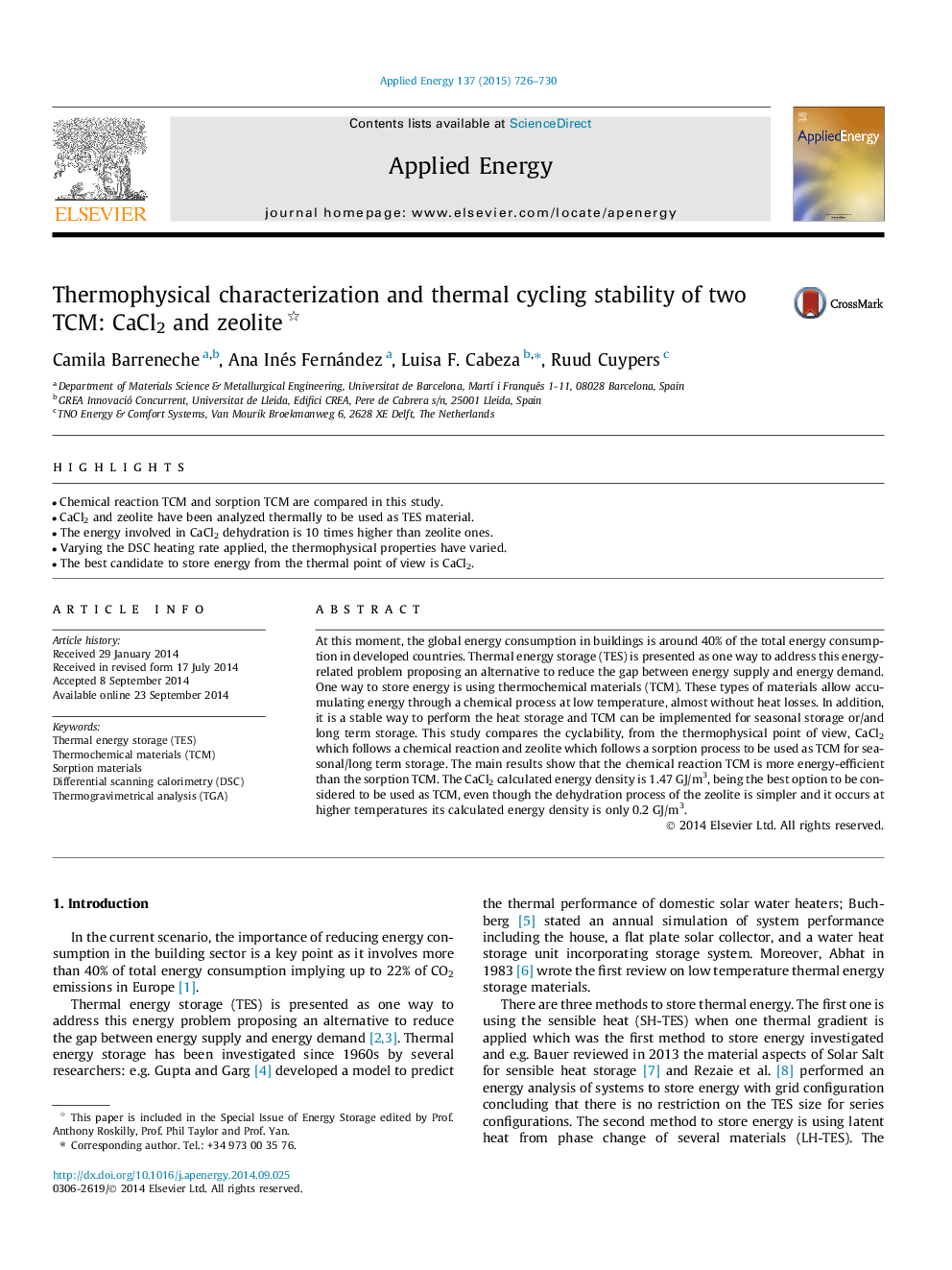| Article ID | Journal | Published Year | Pages | File Type |
|---|---|---|---|---|
| 6688818 | Applied Energy | 2015 | 5 Pages |
Abstract
At this moment, the global energy consumption in buildings is around 40% of the total energy consumption in developed countries. Thermal energy storage (TES) is presented as one way to address this energy-related problem proposing an alternative to reduce the gap between energy supply and energy demand. One way to store energy is using thermochemical materials (TCM). These types of materials allow accumulating energy through a chemical process at low temperature, almost without heat losses. In addition, it is a stable way to perform the heat storage and TCM can be implemented for seasonal storage or/and long term storage. This study compares the cyclability, from the thermophysical point of view, CaCl2 which follows a chemical reaction and zeolite which follows a sorption process to be used as TCM for seasonal/long term storage. The main results show that the chemical reaction TCM is more energy-efficient than the sorption TCM. The CaCl2 calculated energy density is 1.47Â GJ/m3, being the best option to be considered to be used as TCM, even though the dehydration process of the zeolite is simpler and it occurs at higher temperatures its calculated energy density is only 0.2Â GJ/m3.
Related Topics
Physical Sciences and Engineering
Energy
Energy Engineering and Power Technology
Authors
Camila Barreneche, Ana Inés Fernández, Luisa F. Cabeza, Ruud Cuypers,
